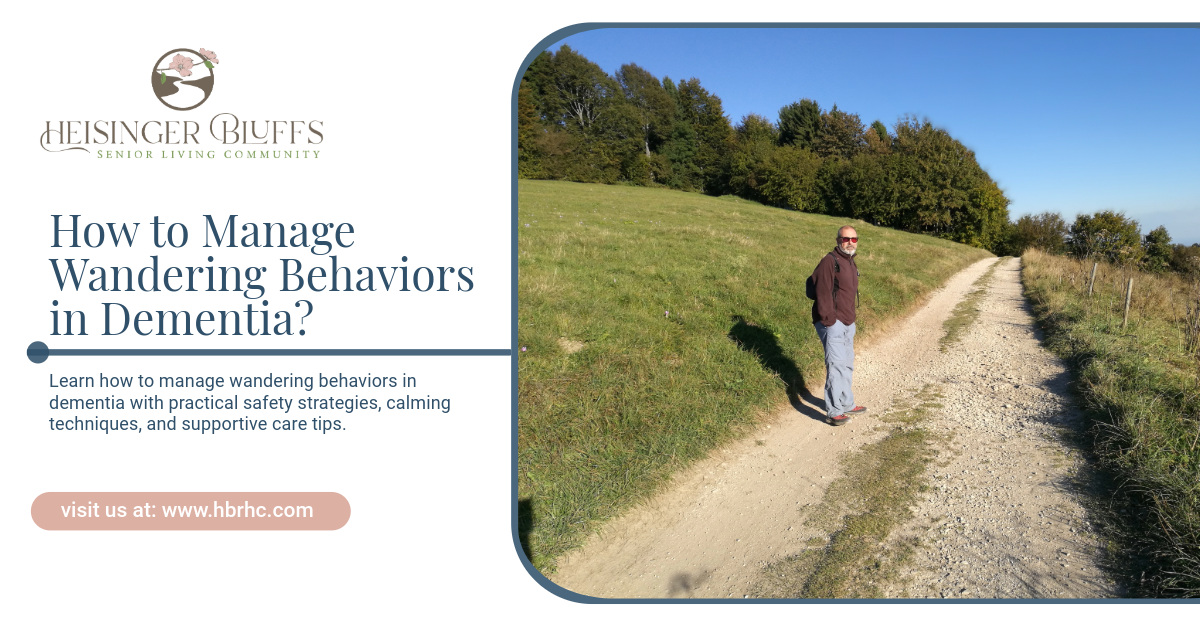How to Manage Wandering Behaviors in Dementia?

Wandering is a common behavior in people with dementia and can pose serious safety risks. Understanding why it happens and how to manage it can bring peace of mind to caregivers.
- Identify triggers: Wandering may occur due to boredom, restlessness, or unmet needs such as hunger or the urge to use the restroom. Recognizing patterns helps prevent episodes.
- Create a safe environment: Use door alarms, secure locks, and motion sensors to reduce risks. Keep living spaces clutter-free to avoid falls.
- Provide structured routines: Consistent daily schedules reduce confusion and anxiety, lowering the likelihood of wandering.
- Encourage physical activity: Gentle exercise and engaging activities can help release excess energy.
- Offer reassurance: Calm communication and redirection often ease agitation that leads to wandering.
At Heisinger Bluffs, our memory care program provides a secure, supportive environment where residents with dementia receive personalized care and protection.
Frequently Asked Questions
Why do dementia patients wander?
Wandering often stems from confusion, restlessness, or unmet needs.
How can I keep a dementia patient safe from wandering?
Use door alarms, secure locks, and structured routines.
When should I seek professional help?
If wandering becomes frequent or dangerous, consult a memory care specialist.
Sources:
- https://www.alz.org/help-support/caregiving/stages-behaviors/wandering
- https://www.upmc.com/services/seniors/resources-for-caregivers/wandering-tendencies-patients-alzheimers-dementia











